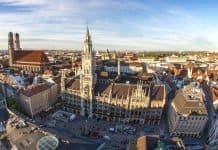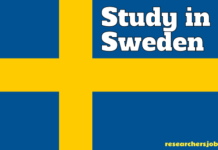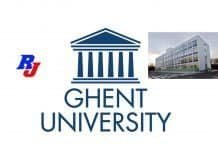PhD Position at European Center: Join our dynamic team at the European Center for Angioscience, investigating the impact of circadian changes in blood vessels on organ health.
PhD Position at European Center for Angioscience
Summary Table:
- Location: Mannheim, Germany
- Eligibility/Qualification: Highly motivated individuals with a background in biological sciences or medicine. Proficiency in English and a team player.
- Description: Research focuses on understanding the role of blood vessels in sustaining circadian rhythms in organ physiology and their involvement in pathologies like cancer and inflammation. Utilizes both wet lab (animal experiments, cell culture, molecular biology assays) and dry lab (multiomic experiments, bioinformatics analysis) approaches. Collaboration with partners across Heidelberg University’s life science campus.
- How to Apply: Apply via the HBIGS portal using the provided link: Apply Now
- Last Date for Apply: ASAP
Description:
Earth’s rotation imposes a day-night cycle, influencing the necessity for an endogenous circadian clock to adapt organ physiology to environmental changes. The Singhal lab at the European Center for Angioscience focuses on understanding the impact of circadian changes in blood vessels on organ health. Specifically, we investigate how endothelial cells lining blood vessels influence diurnal oscillations in organ function and their involvement in diseases such as cancer and inflammation.
The position is open for highly motivated individuals with a strong scientific foundation in biological sciences or medicine. Proficiency in English and a collaborative spirit are essential. The successful candidate will join a dynamic team led by Dr. Mahak Singhal and engage in curiosity-driven research integrating data-intensive approaches with preclinical disease models and advanced analytical techniques.
Applicants will have the opportunity to work with state-of-the-art methodologies in both wet lab and dry lab settings. Wet lab work includes preclinical animal experiments, cell culture, molecular biology assays, and flow cytometric analysis. Experience with small animal handling and flow cytometry is advantageous but not mandatory. In the dry lab, researchers will conduct multiomic experiments focusing on bulk and single-cell RNAseq and proteomics, with training provided in various in-silico tools.
The Singhal lab values collaboration and works closely with partners across Heidelberg University’s life science campus, including ECAS Mannheim, DKFZ Heidelberg, Uniklinikum Heidelberg, and Uniklinikum Mannheim.
Don’t miss this opportunity to contribute to cutting-edge research in circadian biology and vascular science. Apply now via the HBIGS portal. Applications are accepted on a rolling basis, so apply as soon as possible to secure your place in our team.
For more information, visit our website: Singhal Lab









